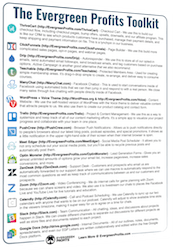Good decision making in the business world has a lot to do with the management of a company. The choices you make as an entrepreneur can have powerful impacts. The “chance of a lifetime” can appear out of nowhere only to turn into something painful.
Conversely, there are those opportunities that don’t seem worthy of a second glance at the time but eventually wriggle their way on to your missed opportunity list. Bartender, I think I’ll have another.
You don’t want to seize just any opportunity — you want the right opportunity.
After all, this is your precious entrepreneurial-baby-of-an-idea that you want to succeed, and that means seeing the light of day tomorrow based on the decision(s) you make today.
Decision-making can be the single-greatest weight upon your shoulders if you don’t know how to manage stress or if the consequences are less than ideal. So, how do you know what a good decision looks like? Here are nine characteristics of a good decision:
1. Decisions Making In Business That Positively Impact Others.
This statement may seem obvious, but if it were, bad decisions wouldn’t exist. After all, anybody who is adversely affected by a decision immediately classifies that decision as bad. Of course, now you just need to find a common definition of “positive.”
2. Good Decisions Are Replicable.
People want to mimic a bad decision like a case of herpes. Enough said (and feel free to tweet that).
3. Good Decisions In Business Foster Opportunity.
An effective decision empowers others to act.
4. Important Decision Making Must Include Others.
Arriving at a conclusion that serves the company is a process. There are boxes to check off that ensure accountabilities are established and authorities are met.
5. Good Decisions Are Executable.
Integral to any decision is clarity around what that decision is. If there’s ambiguity about what to do next then that decision isn’t clear enough. Clarity minimizes uncertainty, and although this may sound like an obvious statement, remember that what’s apparent to you may be newfound insight to others.
6. Any Decision Making Process Should Be Systematic.
Ruling out the good criteria from the bad requires time, resources, clear (there’s that word again) requirements as to what the goal is and judgment to estimate the probability of success.
7. Good Decisions Are Accountable.
With clarity also comes accountability. It’s not easy hiding behind something that outlines, in detail, the roles, responsibilities or expectations associated with a new decision. Tack on the timeline, assets necessary and the conditions that define success and you’re pretty much on a one-way highway to execution without any U-turns (my metaphor for accountability avoidance).
8. Good Decisions Are Pragmatic.
Humans are creatures of emotion, which means eliminating emotion from a decision isn’t feasible. However, what can be eliminated are self-serving emotional biases. In the SEAL Teams, for example, there were three criteria upon which decisions were made: The mission, the team, the individual. Namely, who does the decision serve? Hint: The individual comes last.
When you’re faced with another difficult decision, ask yourself, “Whom does it serve?”
9. The Decision Making Approach Involve Self-Awareness.
If you’re tasked with deciding how to outline your company’s strategy for the next 10 years but you’ve never made a strategic outline, chances are you should defer to the next subject-matter expert. The point is, for a decision to positively impact others, foster opportunity or any of the aforementioned characteristics, you need to be cognizant of when you’re operating within your circle of influence and when you’re pushing its boundaries. Don’t be that person who clutches to decision-making authority because it makes you feel important — defer to the person closest to the problem.
Decision-making is both an art and a science. Incorporate the above nine characteristics into your choice architecture to feel more confident, and watch others do the same.
About The Author
Your Millionaire Mentor
Shaqir Hussyin


Shaqir Hussyin is the founder and CEO of Shaqirhussyin.com & Funnels.com Nicknamed the “Backpack Millionaire”, he’s invested $350,000 into his own education and training. Whilst traveling to 100+ countries, Shaqir has built over 10+ million dollar brands and attracted over 500,000+ subscribers.
His signature program is now available at: CreateDigitalCourse.comspecially designed for aspiring entrepreneurs wanting to start their online business with their very own high paying product.
Shaqir is also a highly sought-after speaker and direct response “Sales Funnels” global leader you can meet in person. His work has impacted over 100,000 businesses in 65 different countries. Connect with Shaqir on Instagram, YouTube, LinkedIn & FB Group.








